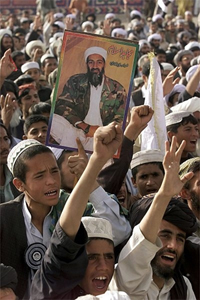 (April 2008) In our post–9/11 world, much effort has been put toward protecting against and preventing future terrorist attacks. But, understanding the very origins of radicalization well enough to stem violent extremism at its source—indeed, prevention at the most basic level—is still a burgeoning field of study.
(April 2008) In our post–9/11 world, much effort has been put toward protecting against and preventing future terrorist attacks. But, understanding the very origins of radicalization well enough to stem violent extremism at its source—indeed, prevention at the most basic level—is still a burgeoning field of study.
An academic center sponsored by the Department's S&T Directorate is making headway. The National Consortium for the Study of Terrorism and Responses to Terrorism (START), a DHS Center of Excellence based at the University of Maryland, uses state-of-the-art theories, methods, and data from the social and behavioral sciences in an attempt to understand terrorism and its roots. START asks: What reasoning can be used to deprive violent extremists of recruits? How can communities undermine sympathy for terrorists and better anticipate terrorist actions? And what can be done to improve the public’s resilience to attacks?
Quite an agenda. And START’s biggest—or at least its most visible—success to date is a massive terrorism online database now open to the public. The unclassified Global Terrorism Database (GTD) allows anyone to look through the public rap sheet on more than 80,000 incidents of terrorism around the world, dating back to 1970, a critical tool for researchers and counterterrorism experts alike. The GTD outlines more than 30,000 bombings, 13,400 assassinations, and 3,200 kidnappings carried out by individuals or groups with agendas across the full political and social spectra. The searchable database also sorts the incidents by more than 100 variables, ranging from the type of perpetrator to the type of weapon used and the number of injuries incurred. From this information, experts can use the GTD to examine short- and long-term trends of terrorism, and help to understand radical groups and movements.
But START does more. The center also looks at why any one person or group becomes engaged in terrorism, exploring factors such as personal values, organizational ideologies, and links between terrorism and other behavior, including criminal. It benefits from the breadth of perspectives and research methods of its staff, which includes criminologists, political scientists, sociologists, psychologists, geographers, historians, psychiatrists, economists, and public health experts.
START focuses, too, on sources of support for terrorist groups and the impacts of local, national, and international counterterrorist strategies on terrorist behavior. It also looks at societal responses to terrorist threats and attacks, focusing on perceptions of, preparations for, responses to, and recovery from incidents.
In addition, through regular reports and briefings, START shares its findings, offering empirically grounded insights on specific topics as they relate to understanding the human causes and consequences of terrorism. For instance, Support for the Caliphate and Radical Mobilization is a recent release by Douglas McLeod and Frank Hairgrove of the University of Wisconsin. It’s an academic overview of efforts by terrorists to establish a worldwide religious and political leader who would support radical viewpoints and actions. The researchers examine how this form of temporal and spiritual government could be misused as a catalyst for terrorism.
“As a Center of Excellence, we’re developing an interdisciplinary subculture in the study of terrorism,” said Kathleen Smarick, executive director of START and a researcher herself. “That gives us our edge and our expertise. It is how we’ll begin to get a grasp on the slippery issues of extremism and radicalization.”
To request more information about this story, please e-mail st.snapshots@hq.dhs.gov.
